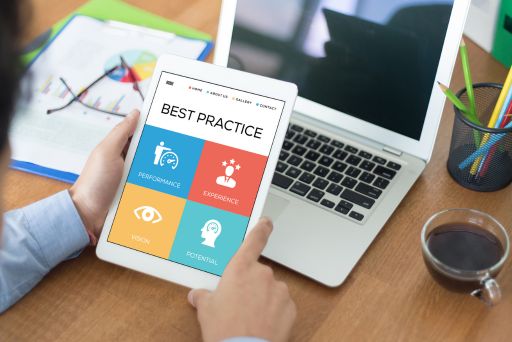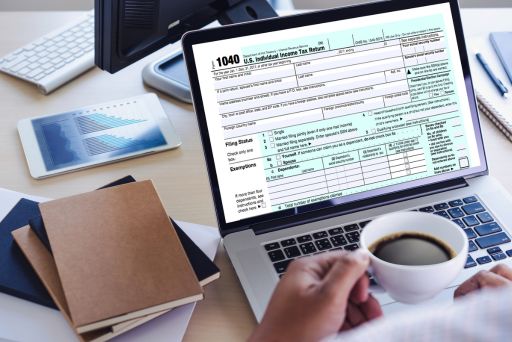In the fast-paced world of ecommerce accounting is the backbone that ensures businesses thrive financially. This comprehensive guide delves into the best practices for managing ecommerce finances, from balancing the books to optimizing cash flow and ensuring compliance with tax regulations.
Ecommerce Accounting Basics

Understanding Ecommerce Accounting
Ecommerce accounting is the systematic recording, tracking, and managing of financial transactions related to an online business. Whether you are a seasoned ecommerce entrepreneur or just starting, implementing sound accounting practices is crucial for sustained success.
Importance of Financial Reports
Financial reports such as the profit and loss statement, cash flow statement, and balance sheets are essential tools for understanding your business’s financial health. Regularly analyzing these reports provides insights into your revenue, expenses, and overall profitability.
What Things Do You Need to Start Ecommerce Accounting?
Business Tax ID Number: If you operate as a partnership or corporation, securing an Employer Identification Number (EIN) from the IRS is imperative. This distinctive nine-digit identifier is utilized in tax documentation, for opening business bank accounts, hiring employees, establishing credit, obtaining permits, and various other purposes. Conversely, if you function as a sole proprietor, you have the option to use your Social Security Number (SSN).
Business Bank Account: A common pitfall for new businesses is mingling personal and business finances. While it might be tempting to utilize an existing account, the complications in untangling finances later make it an ill-advised decision. Instead, it is advisable to establish a dedicated business account. Platforms like PayPal for Business or Shopify Balance offer swift setup options, ensuring separation of personal and business financial matters.
Accounting Software: While Excel or Google Sheets may suffice in the initial stages, the growth of your online business warrants the use of accounting software for efficient tracking of sales, expenses, inventory, and taxes. Notable choices among small businesses and experts include Xero and QuickBooks, both popular cloud accounting solutions. Enhance your tech stack by considering the incorporation of accounting automation apps like A2X, which streamlines transaction summarization, saving time and effort by sitting between your sales channel and accounting software.
Ecommerce Accounting Methods: Cash, Accrual, and Modified Cash
Ecommerce businesses, like other businesses, employ different accounting methods to record and report financial transactions. The three primary ecommerce accounting methods are cash accounting, accrual accounting, and modified cash accounting. Each method has distinct characteristics and implications for how revenue and expenses are recognized.
Cash Accounting
In cash accounting, transactions are recorded when cash is exchanged. This means revenue is recognized when payment is received, and expenses are recorded when payments are made. It provides a straightforward view of the actual cash flow at any given time. Cash accounting is suitable for small businesses with simple financial structures, offering simplicity and ease of use.
Accrual Accounting
Accrual accounting, on the other hand, recognizes revenue and expenses when they are incurred, regardless of when the cash is received or paid. This method provides a more comprehensive picture of the business’s financial performance over a specific period. Ecommerce businesses with a larger scale and complex operations often prefer accrual accounting for its ability to match revenues and expenses more accurately, providing insights into the business’s overall profitability.
Modified Cash Accounting
Modified cash accounting is a hybrid approach that combines elements of both cash and accrual accounting. It allows businesses to record certain transactions on a cash basis while using accrual accounting for others. For example, a business might use cash accounting for day-to-day operations but switch to accrual accounting for large purchases or long-term investments. This method offers flexibility and can be tailored to the specific needs of the ecommerce business.
Considerations for Ecommerce Businesses:
Size and Complexity: Small ecommerce businesses with straightforward operations may find cash accounting sufficient, while larger businesses with complex structures might benefit from accrual accounting to capture a more accurate financial picture.
Cash Flow Management: Cash accounting is beneficial for businesses that want a real-time view of their cash flow. Accrual accounting, on the other hand, provides a more holistic understanding of financial performance but may not reflect immediate cash availability.
Compliance and Reporting: The choice of accounting method can also be influenced by regulatory requirements and reporting standards. Accrual accounting is often required for businesses with higher revenue thresholds. Decision-Making Needs: Businesses focused on strategic planning and decision-making may prefer accrual accounting for its ability to provide a comprehensive view of financial performance, aiding in long-term business planning.

Essential Accounting Tasks for Ecommerce Businesses
Streamlining Bookkeeping Tasks
Streamlining bookkeeping tasks involves optimizing and simplifying the various processes related to financial record-keeping, transactions, and reporting. The goal is to enhance efficiency, accuracy, and overall effectiveness in managing a company’s financial data.
For an ecommerce business, this process includes organizing and automating bookkeeping workflows to ensure seamless tracking of sales, expenses, and other financial transactions. It also involves adopting tools and technologies that simplify data entry, categorization, and reconciliation.
Why is Streamlining Bookkeeping Tasks Important in Ecommerce Business?
Real-Time Financial Insights
Ecommerce businesses often operate in a high-volume, real-time sales environment. Streamlining bookkeeping tasks allows for the immediate recording and updating of financial transactions. This provides business owners with real-time insights into their cash flow, sales, and expenses.
Accuracy and Error Reduction
Automation of routine bookkeeping tasks minimizes the risk of human error. Automated systems can accurately categorize transactions, reducing the chances of discrepancies in financial records. This accuracy is particularly crucial when dealing with a large volume of transactions common in ecommerce.
Time and Resource Efficiency
Manual bookkeeping tasks can be time-consuming and resource-intensive. By streamlining these processes through automation and efficient workflows, businesses can save valuable time and allocate resources to more strategic activities, such as business growth and customer engagement.
Better Decision-Making
Access to up-to-date and accurate financial information empowers ecommerce business owners to make informed decisions. Streamlined bookkeeping ensures that key performance indicators (KPIs) are readily available, aiding in strategic planning and helping the business stay agile in a competitive market.
Compliance and Audit Readiness
Ecommerce businesses are subject to various tax regulations and reporting requirements. Streamlining bookkeeping tasks ensures that financial records are well-organized and readily available for compliance purposes. This not only helps in meeting regulatory obligations but also makes the auditing process smoother.
Scalability
As ecommerce businesses grow, the volume and complexity of financial transactions increase. Streamlined bookkeeping processes are scalable, adapting to the evolving needs of the business without causing disruptions. This scalability is essential for accommodating growth without compromising on the accuracy and efficiency of financial management.
Enhanced Customer Trust
Transparent and accurate financial records instill trust among customers and stakeholders. In ecommerce, where customer trust is paramount, a well-maintained and streamlined bookkeeping system contributes to the credibility of the business.
Cost Savings
While there might be an initial investment in implementing streamlined bookkeeping processes, the long-term cost savings are substantial. Efficiency gains, reduced errors, and optimized resource allocation contribute to overall cost-effectiveness.

Ecommerce Tax Management
Ecommerce businesses often operate in multiple sales channels. Efficiently managing taxes across various sales channels requires a meticulous approach to ensure compliance and prevent financial pitfalls.
Sales Tax Compliance
Ensure adherence to sales tax regulations across multiple jurisdictions. This involves calculating, collecting, and remitting the correct sales tax amounts to relevant authorities.
Business Tax ID Number
Obtain a unique business tax identification number for accurate income reporting and tax return filing, aiding tax authorities in tracking and managing the business’s obligations.
Income Tax Planning
Strategize to minimize overall tax liability through effective income tax planning. This includes optimizing deductions, credits, and exemptions while structuring the business for optimal tax positioning.
Estimated Quarterly Business Taxes
Make timely quarterly tax payments based on expected annual income to cover income tax liabilities. Accurate estimation is crucial to avoid underpayment penalties.
Sales Tax Calculation
Ensure accurate sales tax calculations by staying updated on tax rate changes, understanding product taxability, and integrating precise calculations into online sales processes.
Tax Reporting and Filings
File regular tax reports, including income and sales tax returns, to maintain good standing with tax authorities. Timely and accurate reporting is essential to avoid penalties.
International Tax Considerations
Navigate international tax laws for global ecommerce operations. Understand cross-border tax implications such as VAT or GST, ensuring compliance with each country’s tax regulations.
Technology Integration
Leverage technology, including specialized accounting software and tools, for efficient tax management. Automation aids in accurate tax calculations, tracking legal changes, and streamlining overall tax compliance.
Audit Preparedness
Maintain meticulous records of financial transactions, tax filings, and supporting documentation to be well-prepared for potential tax audits. This ensures effective responses to audit requests.
Generating Regular Financial Reports
Generating regular financial reports in ecommerce is essential for various reasons. Firstly, these reports aid in performance monitoring of an ecommerce business by allowing business owners to assess trends, patterns, and areas that may require attention over time. Additionally, financial reports play a crucial role in budgeting and planning, providing essential data for analyzing revenue, expenses, and cash flow trends, enabling businesses to create realistic budgets and allocate resources strategically.

The insight gained from regular financial reports is instrumental in cash flow management, profitability analysis, and identifying cost trends, contributing to the overall financial health and efficiency of ecommerce operations.
Moreover, these reports instill investor and stakeholder confidence by offering a transparent view of the business’s financial performance, reducing risks associated with financial uncertainty. Compliance with regulations is ensured through the organized and up-to-date nature of regularly generated financial reports, reducing the risk of penalties during audits.
Furthermore, financial reports empower strategic decision-making in the dynamic ecommerce landscape, providing valuable data for expanding product lines, entering new markets, and adjusting marketing strategies. Lastly, the reports serve as a tool for detecting anomalies or issues and investigating variances, allowing for swift corrective action and preventing financial discrepancies from escalating into more significant problems.
Frequently Asked Questions (FAQs)
How does ecommerce accounting differ from traditional accounting?
Ecommerce accounting involves unique considerations such as sales tax compliance, multiple sales channels, and intricate inventory management, setting it apart from traditional accounting.
What accounting method is best for ecommerce businesses?
Choosing between cash basis accounting and accrual accounting depends on your business’s size, complexity, and financial goals. Consult with an accountant to determine the most suitable method for your ecommerce venture.
How can ecommerce businesses optimize cash flow?
Optimizing cash flow involves managing receivables and payables effectively, negotiating favorable payment terms, and maintaining a buffer for unforeseen expenses. Regularly updating and analyzing cash flow statements is crucial for success.








































